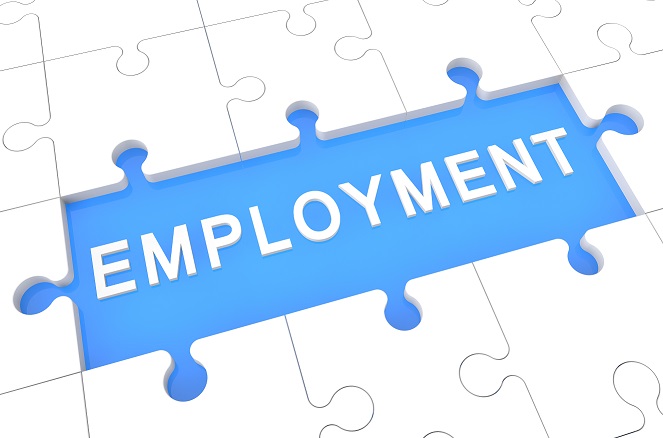EMPLOYMENT AND LABOR LAW: LEGAL UPDATE FOR CALIFORNIA EMPLOYERS
April 06th, 2018/By Admin/In Blog, SBSBLOG

Topics for this Month include:
– California Employment Law Bills to Watch
– Department of Labor’s PAID Pilot Program
– Calculating Overtime Rate When Non-Discretionary Bonus is Paid
– Relaxing of FLSA Exemption Analysis
LEGISLATIVE/REGULATORY UPDATE
There are many bills introduced in the California Legislature in the last couple of months for employers to keep an eye on:
- AB 1867: Requires employers with 50+ employees to retain records of sexual harassment complaints for ten years – in committee.
- AB 1870: Expands time to file a complaint with the DFEH from one year to three years – in committee.
- AB 2016: Expanding ability to cure Labor Code violations prior to being subject to PAGA penalties – in committee, but first hearing canceled.
- AB 2069: Protecting medical marijuana users from discrimination – in committee.
- AB 2282: Amend Labor Code §432.3 (salary inquiry prohibitions) and §197.5 to further define terms and permit employers to consider current employee’s salary in making compensation decision based on legitimate business reasons – in committee.
- AB 2478: Exclude an employee’s gross income payments by employer of up to $5,250 per year to assist with student loan repayment – in committee.
- AB 2482: Another attempt to make implementing flexible work schedules easier – in committee.
- AB 2484: Expands ability to provide compensatory time off to employees under Wage Orders 1, 3, 5, 8, 10, 13 and 14 – in committee.
- AB 2841: Increase paid sick leave from three to five days (40 hours) annually – in committee.
- AB 2946: Increases statute of limitations from six months to three years to file a discrimination charge with the DLSE, and to award attorneys’ fees to an employee who prevails on a whistleblower retaliation complaint – in committee.
- AB 3081: Creates rebuttable presumption of retaliation if action taken against an employee within 90 days of complaining about sexual harassment, increased sexual harassment notice and training requirements – in committee.
- AB 3109: Voiding settlement agreements prohibiting employees from speaking about public issues or seeks to restrict an employee’s right to employment or re-employment – in committee.
- SB 826: Requires public companies with their headquarters in California to have at least one female on their Board of Directors by December 31, 2019 and two females (or three if there are 6 or more authorized directors) by the end of 2021 – in committee.
- SB 937: Increases requirements for lactation accommodation – in committee.
- SB 1038: Reverses current law of no individual liability for retaliation in violation of the FEHA – in committee.
- SB 1284: Requires California-incorporated employers with 100+ employees to report pay data to the Dept. of Industrial Relations beginning September 2019 – in committee.
- SB 1300: Makes several changes to the FEHA – in committee.
- SB 1343: Expands mandatory sexual harassment training to all employees for employers with 5 or more employees – in committee.
Department of Labor Implements Pilot Program
The DOL has implemented a nationwide six-month pilot program entitled the Payroll Audit Independent Determination program (“PAID”), to encourage employers to audit, fix and self-report any pay practices which violate the Fair Labor Standards Act without penalty, as long as employees are compensated for any owed back wages. To find out more information about the program, and whether you company qualifies, visit the Wage and Hour Division’s website, https://www.dol.gov/whd/paid/. However, employers should be aware that this program only relates to federal wage laws. Statutory and civil penalties could still be owed under California law.
SIGNIFICANT CASE LAW
California Supreme Court Clarifies Calculation of Overtime on Non-Discretionary Bonuses
It has long been established that employers must take non-discretionary bonus payments into consideration when calculating an employee’s regular rate for overtime compensation. However, there had not been one standard method for calculating the rate, until now – employers had used different divisors, including the total number of hours worked in the pay period (including overtime), the number of non-overtime hours actually worked, or the number of standard non-overtime hours available during the pay period (e.g., 40 hours per week). Disregarding decisions by federal courts and the Division of Labor Standards Enforcement, the California Supreme Court ruled in Alvarado v. Dart Container Corp. that when an employee earns a flat-sum bonus during a pay period, the divisor in calculating overtime pay rate is the non-overtime hours actually worked during that pay period. If your company provides non-exempt employees non-discretionary bonuses, you will want to review this case to ensure the overtime calculations are correct.
SCOTUS Finds Auto Service Advisers Exempt Under the FLSA
In Encino Motor Cars, LLC v. Navarro, the U.S. Supreme Court in a split 5-4 decision, found that automobile service advisors – who consult with customers about their service needs and sell them servicing solutions – qualify as “salesmen” primarily engaged in “servicing automobiles,” and therefore are exempt from the Fair Labor Standards Act. More significantly, the Court rejected the principle that FLSA exemptions must be “narrowly construed,” finding nothing in the law requiring such a narrow interpretation of exemptions, and that the exemptions must be given a “fair reading.” Note, however, that California continues to analyze state-based exemptions on a narrow basis.
[This article is for informational purposes only and does not constitute legal advice. Do not act or rely upon any of the resources and information contained herein without seeking appropriate professional assistance.]





